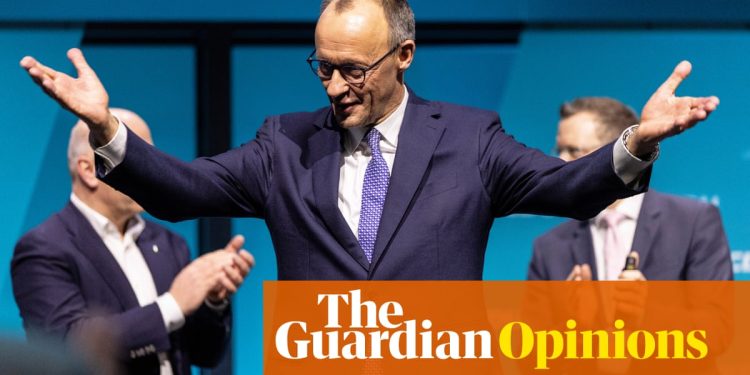When Germany’s Chancellor Olaf Scholz decided last November to trigger a snap election for this weekend, many questioned the timing. In the U.S., Donald Trump had recently secured a significant win and was all set to implement rapid, possibly disruptive changes. Amidst such political turbulence, was it really wise for the EU’s most influential country to dive into a period of deep reflection?
Fast forward three intense months, and with German democracy facing scrutiny from Trump’s administration, Sunday’s election presents a crucial opportunity for recalibration. Any federal election in Germany sends ripples far beyond its borders. This particular one marks the beginning of a new chapter, where the once-dependable transatlantic alliance sustaining Europe’s postwar security is now uncertain. The election outcome will significantly influence how the EU tackles this new normal, navigating decisions on defense budgets and safeguarding Ukraine.
Current polls show the center-right coalition of the Christian Democratic Union and the Christian Social Union leading comfortably, suggesting a probable shift where Scholz may hand over the chancellery to Friedrich Merz, also from the CDU. Merz, known for his firm stance against Trump’s pressure concerning Ukraine and potential trade tariffs, appears set to adopt a more assertive European approach. By contrast, Scholz’s inward focus has occasionally frustrated leaders like France’s Emmanuel Macron.
Scholz’s introspection had its merits. Despite the daunting global landscape, many German voters remain focused on domestic issues. A series of tragic attacks involving migrant suspects has been skilfully manipulated by the far-right Alternative für Deutschland (AfD) party, pushing immigration to the forefront of political debate.
Most mainstream parties continue to uphold a firm barrier preventing the AfD from gaining power. Nevertheless, Merz himself relied on their support to push tighter migration laws recently. On Sunday, the AfD is projected to claim a robust second place, an unsettling position for a party labeled as potentially extremist. Their rising appeal among voters under 35, especially young men, is worrying.
Economic stagnation has certainly fueled the far-right’s growth. The end of cheap Russian energy, coupled with high interest rates and declining demand for German exports, has battered the country’s business model post-pandemic. Since Covid hit, nearly a quarter-million manufacturing jobs have vanished in a nation once seen as Europe’s industrial beacon. Scholz’s efforts to alleviate this have been hamstrung by a constitutionally-enshrined debt brake from 2008, leaving borrowing for investment a difficult path.
In these challenging times, Europe needs a strong and thriving Germany at its core. With a fragmented political landscape as the backdrop, it’s likely a broad coalition led by Merz will emerge, tasked with steering the country forward. Meanwhile, the AfD positions itself as a potential Trump-inspired alternative, with endorsements from figures like Elon Musk and U.S. Vice President JD Vance. Now, more than ever, the success of moderate and collaborative politics is critical. Since reunification, Germany, and indeed the world, hasn’t faced stakes of this magnitude.

















